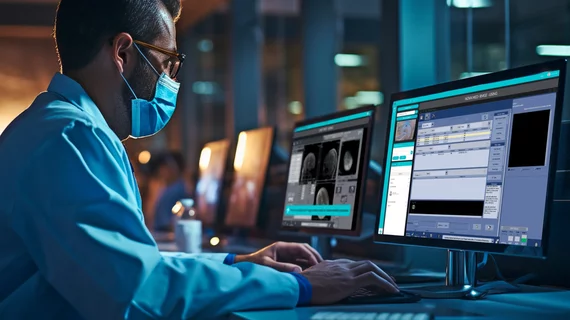GE HealthCare touts FDA clearance of solution that allows technologists to scan remotely
GE HealthCare on Monday touted the U.S. Food and Drug Administration clearance of a solution that allows technologists to oversee patient scans remotely.
The offering is from Ionic Health, which is based in São Paulo, Brazil, where the company has already tested the technology for three years. Called “nCommand Lite,” the system is vendor-agnostic, allowing techs to remotely supervise scans across modalities including MRI, CT and PET.
GE has inked a deal to exclusively distribute the nCommand in the U.S., hoping it can help relieve ongoing workforce shortages.
“GE HealthCare is committed to continued investment in the rapidly growing space of remote operations through innovation and strategic collaborations that support the current and future needs of healthcare institutions,” Rekha Ranganathan, chief digital officer for imaging at the Chicago-headquartered manufacturer, said in a March 25 announcement. “Our goal is to provide remote operations solutions that lead to increased access for patients, including patients who may require complex care and support from an off-site expert technologist,” she added.
Along with scanning, off-site experts also can use nCommand Lite to aid in training, procedure assessment and scanning parameter management, GE noted. Additionally, the system allows remote users to connect across multiple scanners, using low bandwidth to optimize connections. The company previously announced its exclusive distribution agreement with Ionic Health in conjunction with RSNA 2023 last November.
GE’s announcement comes amid growing interest in remote scanning. The American College of Radiology in February urged CMS to permanently allow remote supervision of diagnostic tests—a temporary perk granted during the pandemic that has remained popular amid staffing challenges. ACR also recently issued an updated statement, emphasizing that trained medical professionals should administer contrast media during such exams.
Meanwhile, technologists have voiced discomfort with the idea of managing imaging remotely, according to recent survey data from the American Society of Radiologic Technologists.

